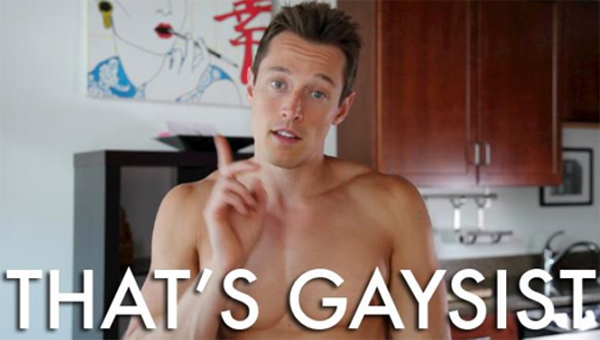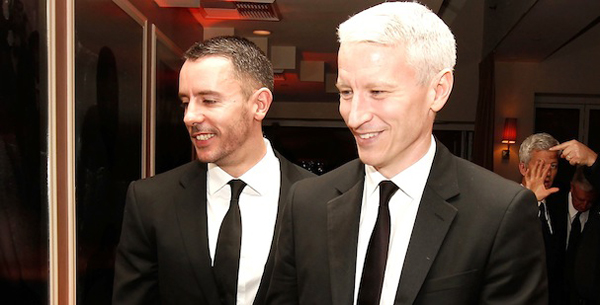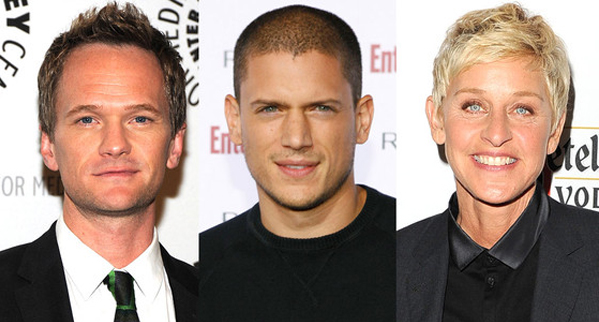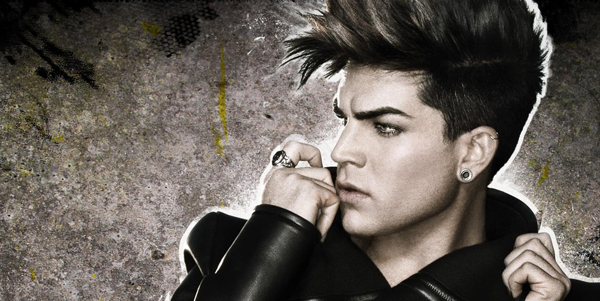Songs for the New Depression

Author Interview: Kergan Edwards-Stout
Award-winning director and Huffington Post contributor, Kergan Edwards-Stout, who was honored by the Human Rights Campaign as a “2011 Father of the Year”, recently published his debut novel, Songs for the New Depression. The novel has received much critical acclaim and was short-listed for the Independent Literary Awards.
Q: What inspired you to write Songs for the New Depression?
A: Over 12 years ago, out of the blue, a line popped into my head: “James Baldwin once wrote that Americans lack a sense of doom, yet here I stand.” At the time, I didn’t know where that line came from, who was speaking it, or what it would become, but that line stuck with me, eventually becoming the first line of the novel.
Q: Were you familiar with James Baldwin’s work?
A: I’d read Giovanni’s Room many years ago, and that concept, that Americans lack a sense of doom, really resonated. I really wanted to try to capture that moment in time, before the new HIV drugs came along, with all of that raw humor, love, friendship, sex, and danger. Too often, the temptation is to write about such times in sepia tones, but I really wanted to try to capture that moment as vividly as I could.
Q: Your lead character, Gabriel Travers, knows he’s going to die, and is looking back at the choices he has made. Are his experiences based on someone you know, or events in your own life?
A: His journey is entirely fictional, but when I hear his voice in my head, it sounds a lot like my partner Shane Sawick, who died in 1995. He was witty, cynical, passionate, but also had his insecurities and self-doubt. I wanted to honor him, as well as friends who died during that time, and tried to do that with this book. It’s filled with a lot of the love, laughter, and sex that seemed to be so prevalent in those years.
Q: Gabriel makes many mistakes on his journey. What is he hoping to accomplish?
A: Like so many of us, Gabriel really wants to better himself, but doesn’t know how. Growing up, he wasn’t given the tools he needed, and when you don’t feel loved, it’s easy to make mistakes in pursuit of affection. When he realizes that he is dying, however, he is forced to confront his past, in particular a horrific event that happened in his youth and shaped his future choices. Learning to love and accept himself, flaws and all, is what he attempts to do. And I think that is why he and the book resonates with women. That kind of quest and the epic love story really appeal to women, as well as gay men.
Q: Your novel is broken into three distinct sections. What lead you to take that approach?
A: I felt like this story, Gabe’s discovery of himself, was really about peeling back the layers, finally revealing what is at his core and makes him act the way that he does. I like the way we first meet him, in 1995, facing death and trying to make amends. It then skips back 10 years, to when he’s in his 20’s, living that hedonistic L.A. life, and we seeing him making his mistakes. Then it jumps back another 10 years, finally revealing his high school self, his more naïve nature, and the moment which would inform everything that came after. Plus, if I’d told the story linearly, and the readers knew what he’d faced right away, much of the drama would have been gone.
Q: Given the events Gabe experiences in high school, how do you feel about all of the recent news about the bullying of LGBT youth?
A: Clearly, it is terrible. But I also believe that many of the campaigns trying to alleviate the problem are missing the point. We can never get rid of bullies. There will always be another. So the question becomes, what can we do about those who suffer at their hands? What tools can we give them? How do we make sure they have every chance to overcome their ordeal and blossom into well-functioning adults? It is our duty to help them not be defined by that moment.
Q: Where does the title, Songs for the New Depression, come from?
A: It’s the title of Bette Midler’s third album, released in 1976. Gabe is one of her biggest fans, and that album resonates thematically throughout the book.
Q: What did you do before you started writing?
A: I’ve always loved writing, but when I was younger, I got my degree from UCLA in Theatre, focused on acting and directing, and did a lot of production work in film and television. Writing became more of a passion when I realized what a bad actor I was! (laughing) But I have some great stories from those days. I cast and directed Jack Black in his first college productions, one of which went on to perform at the Kennedy Center. I also directed Eric Close, of TV’s long-running Without a Trace, in his first professional production.
Q: What made you leave entertainment?
A: As much fun as all of that was, I wasn’t being fulfilled emotionally. I came to a point where I realized that I needed something more rewarding in my life, and I took a job at AIDS Project Los Angeles. I’d been a longtime volunteer, and ended up working there for four years, running an AIDS intervention program. Little did I know then how much that decision would ultimately change my life.
Q: Is that where you met your then-partner?
A: Yes—Shane was the coordinator of the Southern California AIDS Hotline. We were together for two years before he died, and that experience of fully loving and caring for another really readjusted me. Until then, I’d been pretty self-obsessed. Without that personal awakening, of being a caregiver for another, I don’t think I would’ve been a very good parent, partner—or even a decent writer.
Q: So, you mentioned you’re a parent. How did that come about?
A: My partner Russ and I have two amazing boys, Mason and Marcus, who bring us a lot of joy. Mason was adopted privately at birth, and Marcus came to us at age two, through fost-adopt. Mason is now 12 and terrific at sports, and Marcus is 9, and will likely end up on a stage somewhere.
Q: Do you have another project in the works?
A: I’m currently writing a memoir, based on an incident which made me question every single aspect of my life, called Never Turn Your Back on the Tide.
Q: Do you have any advice for other writers?
A: Absolutely—find your own voice. When I was in college, I worked closely with playwright Michael Sargent, whose writing was so good, so tinged with anger, that I thought to myself “I can’t write like him—I’ll never be a writer.” What I didn’t realize, though, is that I didn’t have to write like him to be a writer. You have to reach inside yourself and discover your own unique voice. And for me, that only came with age and life experience.
Songs for the New Depression is available now at BarnesandNoble.com, Amazon, and fine booksellers everywhere.
ORDER NOW ONLINE Songs for the New Depression
































